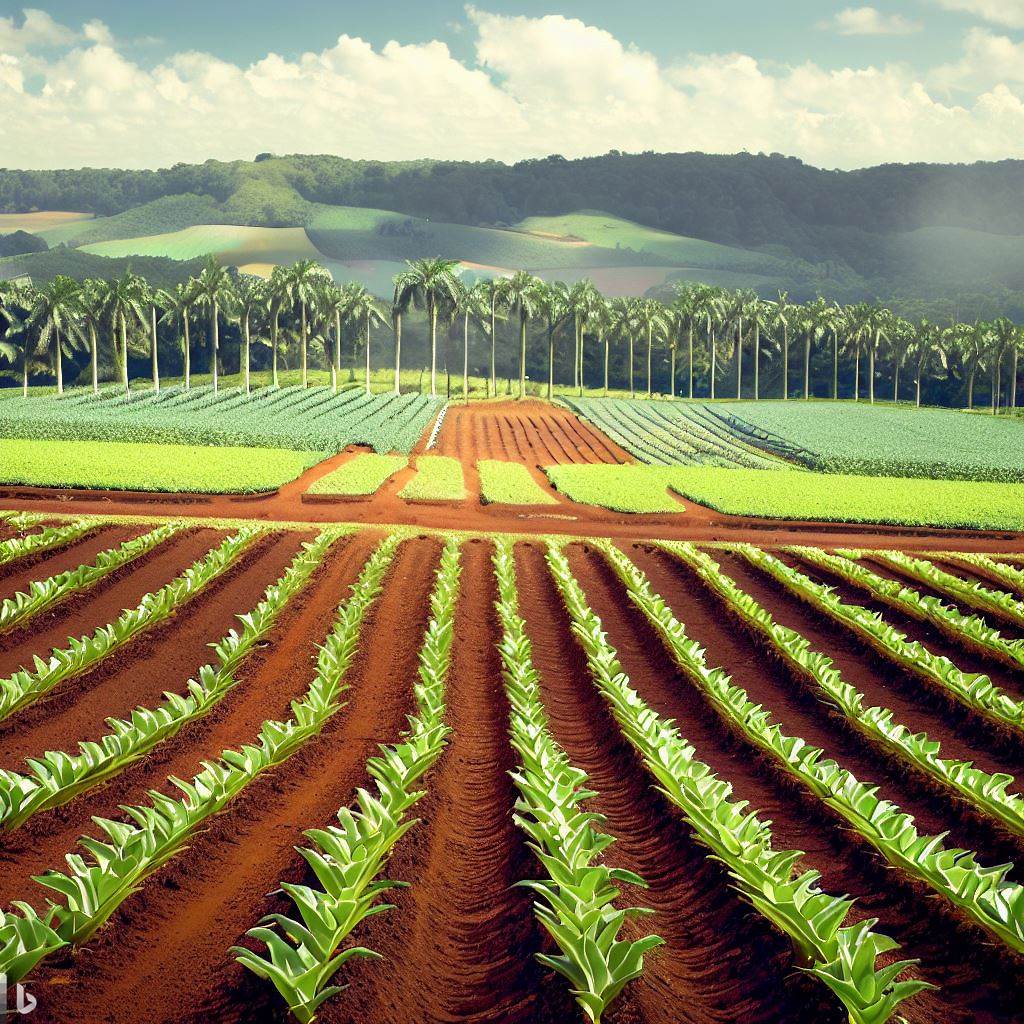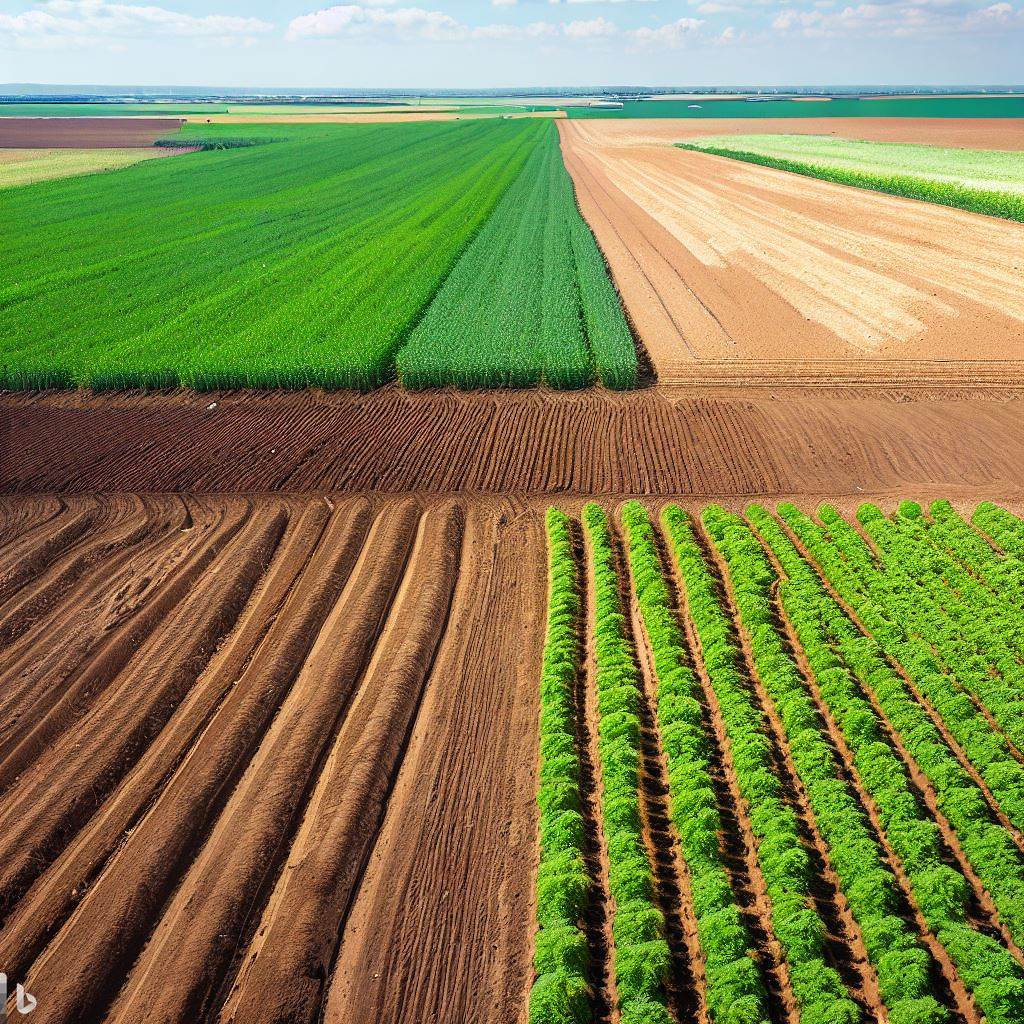What Is Plantation Agriculture?
Plantation agriculture refers to a type of commercial farming system where monoculture plantations are cultivated on a large scale to produce cash crops. It involves the cultivation of a single crop over large areas of land, often owned by a single individual or corporation, with the primary objective of generating profit.
Introduction
Plantation agriculture is a large-scale production system that involves the intensive cultivation of a single crop, typically for export. This form of agriculture originated in the 16th century, during the European colonization of the Americas, Africa, and Asia.
Explanation of Plantation Agriculture
Plantation agriculture involves the cultivation of crops such as coffee, tea, cocoa, rubber, sugarcane, and palm oil on large tracts of land, using specialized equipment and techniques. The production of these crops is highly mechanized, and labor-intensive, with workers often living on the plantation.
Historical Context of Plantation Agriculture
Plantation agriculture was developed by European colonizers, who sought to profit from the export of cash crops from their colonies. The system was characterized by the use of forced labor, such as slaves and indentured servants, who were brought from Africa, Asia and other parts of the world.
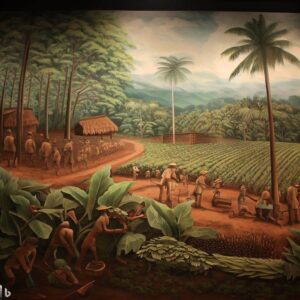
Importance of Plantation Agriculture
Today plantation agriculture is a significant contributor to the global economy, particularly in developing countries where it provides employment opportunities for millions of people. Furthermore, it is one of the main sources of foreign exchange for these countries.
Environmental Effects
Plantation agriculture has several negative environmental impacts that can be felt locally and globally.
Deforestation
Deforestation is the clearing of forests for agriculture, settlement, logging, or other purposes. It has become a significant problem in many countries, especially in tropical areas. In plantation agriculture, forested areas are often cleared to make way for large-scale commercial farming.
Definition of Deforestation
Deforestation is the removal of forests, usually done to clear land for agriculture, logging, or other purposes.
How Plantation Agriculture Contributes to Deforestation
Plantation agriculture often involves the clearing of large tracts of forest land, which can have devastating effects on local ecosystems. This destruction of forests also contributes significantly to global greenhouse gas emissions, exacerbating the problem of climate change.

Environmental Impact of Deforestation
The environmental impacts of deforestation are numerous and significant, including soil erosion, loss of biodiversity, and increased greenhouse gas emissions.
Soil Degradation
Soil degradation is the decline in soil quality, often due to inappropriate land use or agricultural practices. It can be caused by overuse, overgrazing, or the use of chemicals such as pesticides and fertilizers.
Definition of Soil Degradation
Soil degradation is the deterioration of the physical, chemical, and biological properties of soil, often due to inappropriate land use or agricultural practices.
Causes of Soil Degradation in Plantation Agriculture
Plantation agriculture often relies heavily on monoculture farming, which can contribute to soil degradation. This is because farming the same crop on the same land year after year can lead to a decline in soil health.
Consequences of Soil Degradation
Soil degradation can have serious consequences for agricultural productivity and can lead to the loss of topsoil, which is essential for plant growth.

Biodiversity Loss
Biodiversity loss is the decline in the variety of plant and animal species in a given area. It is often the result of human activities, such as deforestation, land-use change, and pollution.
Importance of Biodiversity
Biodiversity is important for the health of ecosystems and the survival of many plant and animal species.
How Plantation Agriculture Impacts Biodiversity
Plantation agriculture often involves the clearing of large tracts of forest land, which can lead to the loss of biodiversity. Additionally, the use of chemical fertilizers and pesticides in plantation agriculture can further impact biodiversity.
Effects of Biodiversity Loss on the Environment
The loss of biodiversity can have serious environmental consequences, including the disruption of natural ecosystems and the loss of important ecological services such as pollination and nutrient cycling.
Water Scarcity
Water scarcity is the lack of access to clean water for drinking, irrigation, and other essential purposes. It is a growing problem in many areas of the world, particularly in areas where agriculture is a major source of water use.

Explanation of Water Scarcity
Water scarcity is the lack of access to an adequate amount of clean water for drinking, irrigation, and other essential purposes.
How Plantation Agriculture Contributes to Water Scarcity
Plantation agriculture can lead to increased water demand for irrigation, potentially exacerbating water scarcity in regions with limited water resources.
Impacts of Water Scarcity on the Environment
Water scarcity can have several environmental impacts, including the degradation of freshwater ecosystems and the reduction of plant and animal biodiversity.
Labor and Social Issues
Plantation agriculture has a history of labor exploitation and abuse, including forced labor, child labor, and the displacement of subsistence farmers.

Forced Labor
Forced labor is the use of coercion to compel someone to work, often in conditions of exploitation and abuse.
Definition of Forced Labor
Forced labor refers to work or service extracted from someone under the threat of penalty, without their voluntary consent.
How Forced Labor is Prevalent in Plantation Agriculture
Plantation agriculture has a long history of using forced labor, including slavery and other forms of exploitation. In some cases, workers are coerced to work on these plantations, often under terrible conditions.
Efforts to Combat Forced Labor in Plantation Agriculture
There are many efforts underway to combat forced labor in plantation agriculture, including international standards, government regulations, and industry-wide initiatives.
Child Labor
Child labor is the use of children to perform work that is exploitative and harmful to their physical and mental development.
Definition of Child Labor
Child labor is any work done by children under the age of 18, which is likely to harm their health, safety or morals.
How Child Labor is Prevalent in Plantation Agriculture
Child labor is prevalent in plantation agriculture, particularly in regions where poverty, lack of education and weak labor laws prevail.
Efforts to Combat Child Labor in Plantation Agriculture
There are many efforts underway to combat child labor in plantation agriculture, including international standards, government regulations, and industry-wide initiatives.
Subsistence Farming
Subsistence farming is a self-sufficient farming system in which the farmer grows only enough food to feed their family and sell the surplus in local markets.
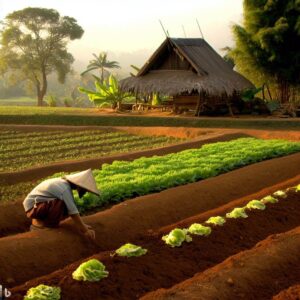
Definition of Subsistence Farming
Subsistence farming is a farming system where the farmer grows only enough food to meet the needs of their family and sell the surplus in local markets.
How Plantation Agriculture Affects Subsistence Farmers
Plantation agriculture often involves the displacement of subsistence farmers, who are forced to leave their land to make way for large commercial farms. This can have serious consequences for the livelihoods and food security of these farmers.
Social Repercussions of Plantation Agriculture on Subsistence Farmers
The displacement of subsistence farmers can lead to the loss of traditional land rights and economic insecurity, particularly for women and marginalized groups.
Economic Impact
Plantation agriculture has significant economic impacts on local and national economies, including the creation of jobs, export earnings, and foreign investment.
Impact of Plantation Agriculture on Local Economies
Plantation agriculture can provide employment opportunities and generate income in areas where there is often a lack of economic opportunities. This can contribute to the development of local communities and reduce poverty.
Role of Foreign Investors in Plantation Agriculture
Foreign investors often play a significant role in plantation agriculture in developing countries. The investment can contribute to the development of local economies, but it can also lead to the displacement of local communities.
Impacts of Plantation Agriculture on National Economies
Plantation agriculture can be a significant source of foreign exchange earnings for developing countries. It can also contribute to economic growth and development.
Sustainable Practices
Sustainable agricultural practices are farming methods that are ecologically sound, socially just, and economically viable.
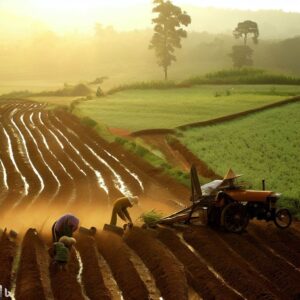
Alternatives to Plantation Agriculture
Alternative farming methods include agroforestry, permaculture, and conservation agriculture, which promote ecological sustainability, community development, and food security.
Advantages of Alternative Methods over Plantation Agriculture
Alternative farming methods have several advantages over plantation agriculture, including increased crop yields, improved soil health, reduced water use, and increased biodiversity.
Examples of Sustainable Practices in Agriculture
There are many examples of sustainable agricultural practices, including soil conservation, integrated pest management, crop diversification, and use of renewable energy sources.
Corporate Responsibility
Corporate responsibility is the recognition that companies have an obligation to people and the planet, as well as to their shareholders.
Importance of Corporate Responsibility
Corporate responsibility is essential for ensuring long-term environmental sustainability and social justice.
How Corporations Can Implement Sustainable Practices
Corporations can implement sustainable practices by adopting ethical business practices, reducing greenhouse gas emissions, and supporting local communities.
Examples of Corporations Implementing Sustainable Practices
Many corporations are implementing sustainable practices, such as Nestle, Starbucks, and Unilever, which are investing in sustainable farming practices, poverty alleviation, and community development.
Governmental Policies
Governmental policies play a critical role in promoting sustainable agriculture, including the protection of the environment and the welfare of workers.
Importance of Governmental Support for Sustainable Practices
Governmental support is essential for ensuring sustainable agriculture and food security.
Examples of Government Policies that Promote Sustainable Practices
Government policies that promote sustainable practices include environmental regulations, labor laws, and agricultural subsidies.
Benefits of Governmental Support for Sustainable Practices
Governmental support for sustainable practices can lead to increased crop yields, reduced greenhouse gas emissions, and improved health and social well-being.
Conclusion
Plantation agriculture has several negative environmental and social impacts, such as deforestation, soil degradation, biodiversity loss, forced labor, child labor, and the displacement of subsistence farmers. Sustainable agricultural practices are critical for ensuring environmental sustainability, social justice, and economic development. To promote sustainable practices in agriculture, corporations, governments, and individuals must take an active role in promoting ethical business practices, reducing greenhouse gas emissions, supporting local communities, and protecting natural resources.
FAQs
What is plantation agriculture?
Plantation agriculture is a large-scale production system that involves the intensive cultivation of a single crop, typically for export.
How does plantation agriculture affect the environment?
Plantation agriculture has several negative environmental impacts, including deforestation, soil degradation, biodiversity loss, and water scarcity.
What are sustainable alternatives to plantation agriculture?
Sustainable alternatives to plantation agriculture include agroforestry, permaculture, and conservation agriculture.
What is the role of corporate responsibility and governmental policies in promoting sustainable practices in agriculture?
Corporate responsibility and governmental policies play a critical role in promoting sustainable agriculture, including protecting the environment and the welfare of workers, supporting local communities, and ensuring economic sustainability.

